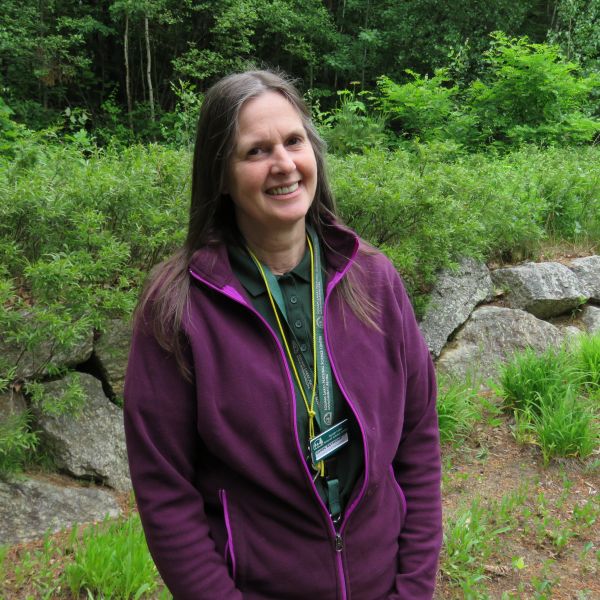Image

-
Carol Raymond
Volunteer Manager, Squam Lakes Natural Science Center
- ee360 Fellow
Carol Raymond is the Volunteer Manager for Squam Lakes Natural Science Center in Holderness, New Hampshire. Although Holderness and its surrounding towns and city have a population of under 40,000 people, it receives strong support through its volunteer corps. In 2017, 344 volunteers donated 8,900 hours of service. In 2009, Carol introduced a new junior docent program for teen volunteers called First Guides, which trains them to be an educational presence on a native wildlife exhibit trail. In 2018, Carol added a new element to the First Guides program by inviting teens to participate in local environmental community action projects. The goals of the program are to expand the teens’ outreach and visibility in the community, to increase their skills and impact, and to offer experiential opportunities in environmental education. Staff and Fellows in the ee360 program have given tremendous support and provided an educational vehicle to start and move the Community Action Project forward. Carol has a Bachelor’s degree from Norwich University and is a mother of two and grandmother of two. She enjoys learning about local flora and fauna, gardening, and sharing the outdoors with family and friends.
About Carol‘s ee360 Community Action Project
The Squam Lakes Natural Science Center’s Community Action Project is designed specifically for teen junior docent volunteers called "First Guides", focused on community environmental concerns. Teen volunteer First Guides are encouraged to include a Community Action project during the summer months as part of their volunteer junior docent service. First Guides are between the ages of 14 and 17 years old and may be local residents or summer residents from out of state, with an average of 15 teens annually, participating. The project may be one offered through local environmental nonprofit organizations, or an opportunity at the Science Center. After participating in a project, First Guides educationally share their story and the outcomes of the project with the public through written, visual, and/or oral means virtually and in person. The goal is to increase their awareness of local environmental issues, initiate participation in a project connected to an issue and communicate through expressive means about the issues.